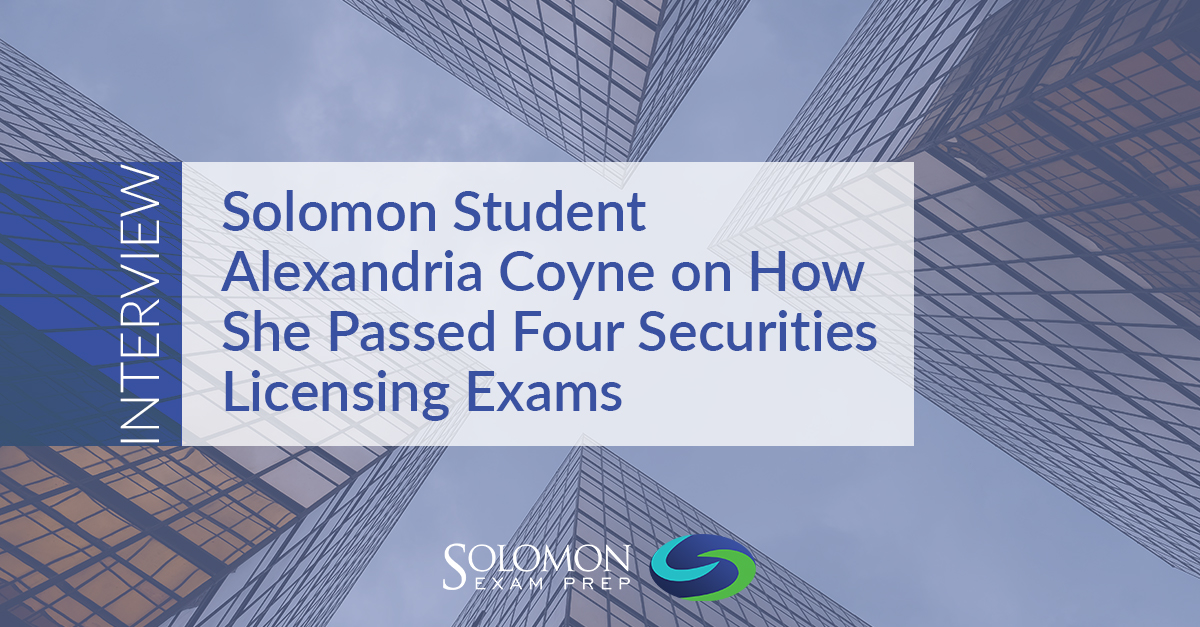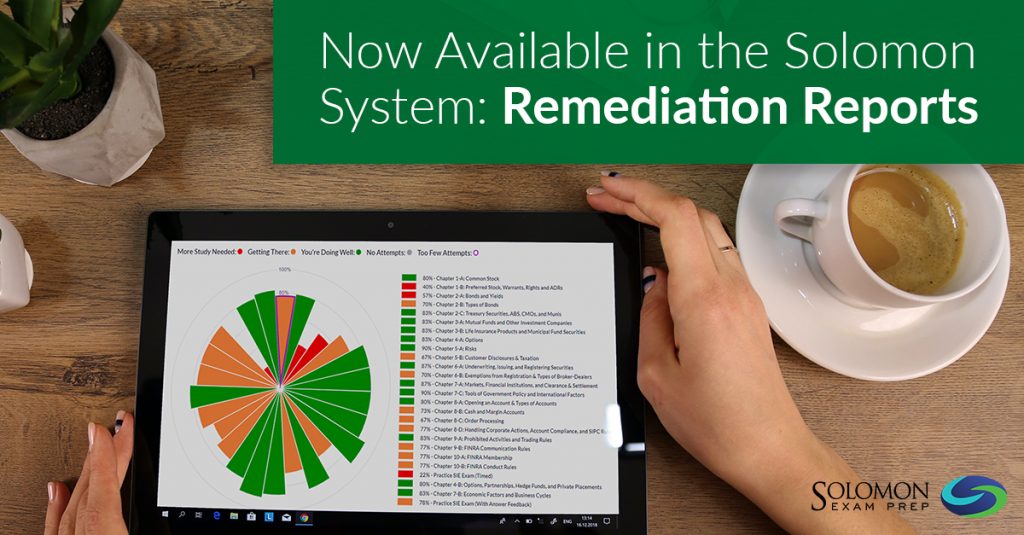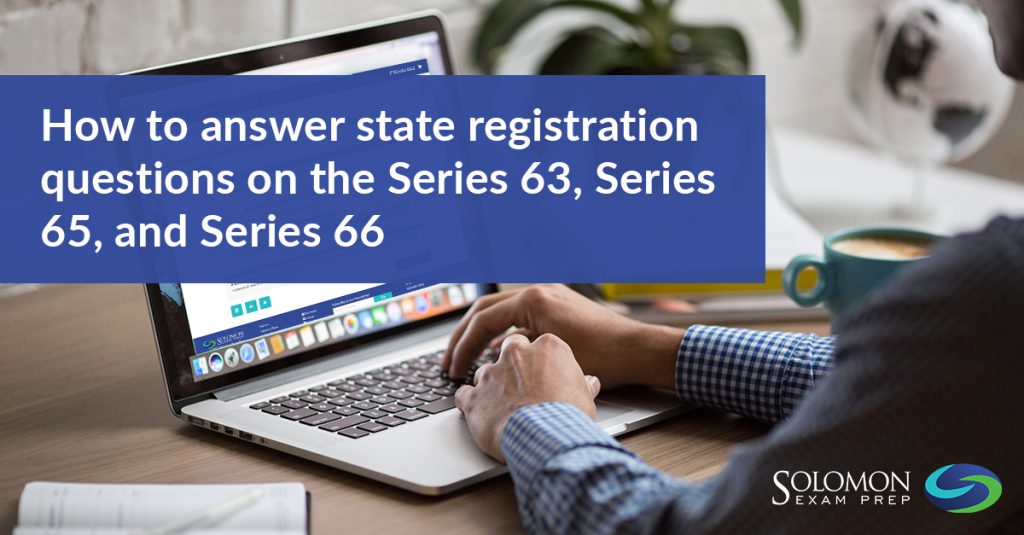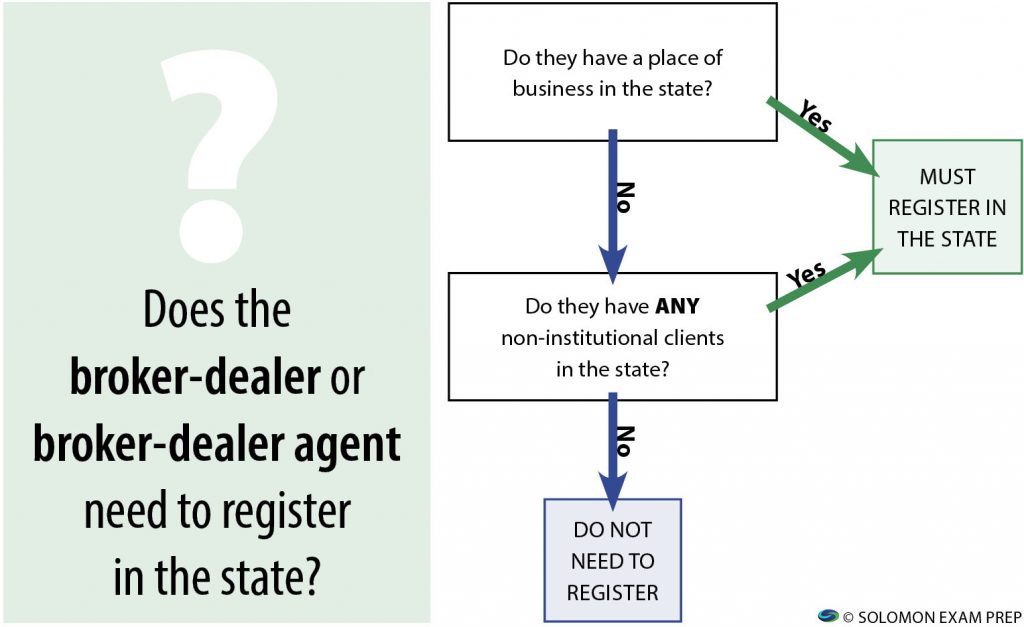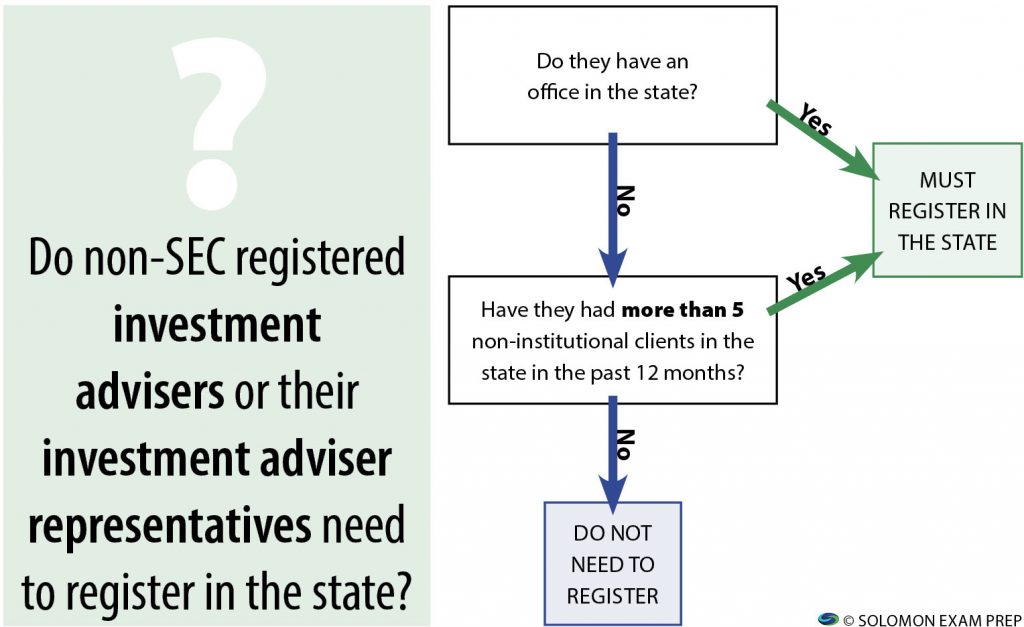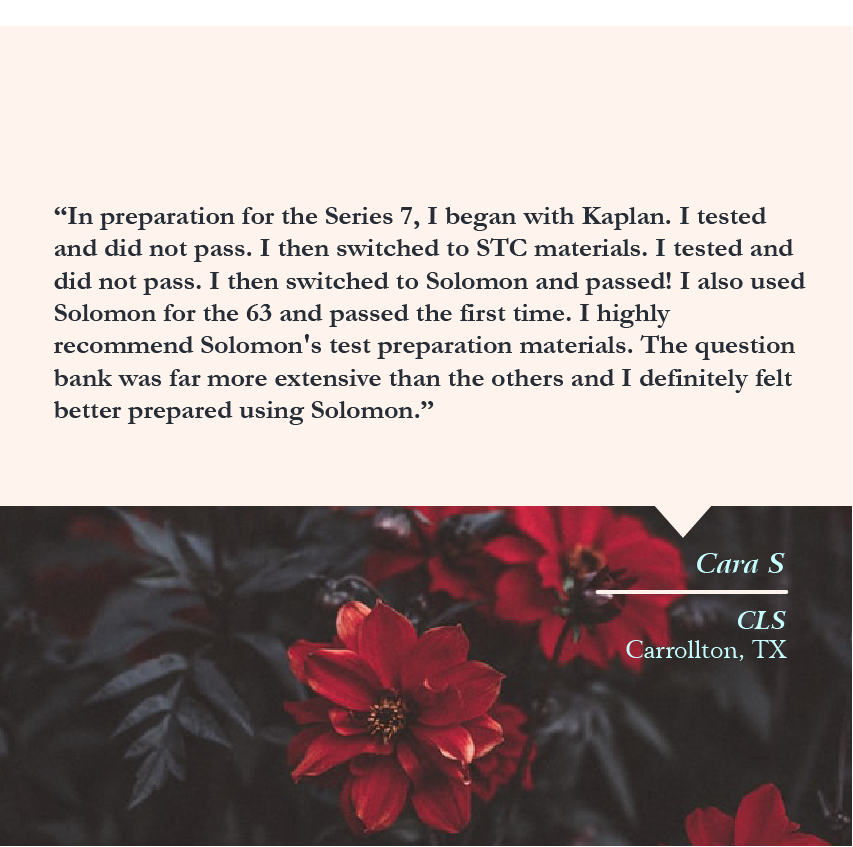It’s not uncommon for those in the securities and investment industries to need more than one securities license. But the determination involved in passing multiple securities licensing exams (especially in a short time period) is substantial. Case in point: Alexandria Coyne, Financial Advisor at Northwestern Mutual, who passed her fourth exam with Solomon Exam Prep earlier this year. She now has the SIE, Series 6, Series 7, and Series 63 under her belt. Alex was kind enough to answer Solomon’s questions about her study approach and how she achieved success four times.
“I really wanted to learn the material through and through, so I was never preparing for an exam; I was preparing for a career.”
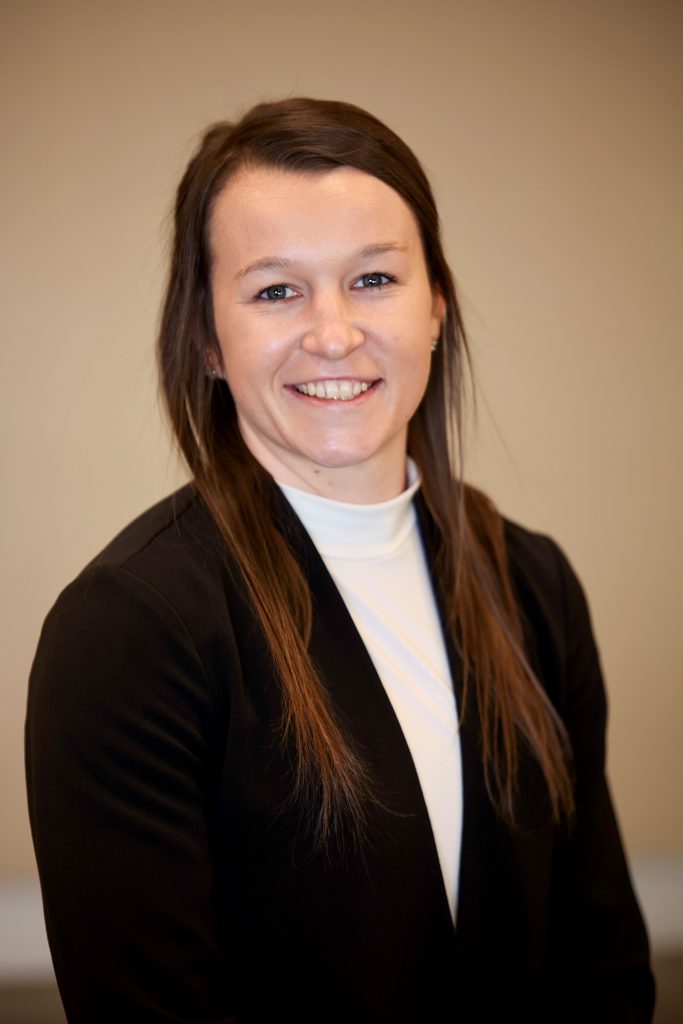
Alex Coyne
Solomon Exam Prep: Why did you take your exams in the order that you did? Was this order helpful, or would you change anything if you had to do it again?
Alex Coyne: I took the SIE, the 6, the 63 and then the 7. If I could do it all over, I’d do the same thing! The SIE was a great entry level exam for the 6. To me, there was only a little bit of differentiating content between the two exams. I will always recommend splitting up the 6 and the 7. I think the 6 was just high-level enough to get an understanding of the content. The 7, on the other hand, got extremely detailed. I truly believe that if I went straight into the 7 from the SIE, I wouldn’t have been successful on my first attempt.
Solomon Exam Prep: Out of the exams you passed, which one required the most study time and why?
Alex Coyne: Most definitely the Series 7. I just think that there were a lot of details to remember and a lot of information to digest.
Solomon Exam Prep: How did you approach studying for your exams?
Alex Coyne: I recommend everyone to Solomon. I think that Solomon did an amazing job with the study material. What I have found to be most successful for me:
The first thing I did was set an exam date. That was just knowing my ability to procrastinate, so I had to put a timeline on this thing before it even started!
Order the book. Read the entire book in full, highlighting important content and underlining even more important content. I found that 20 pages per day was my reading goal.
Once the book was read in full, I WROTE out all the highlighted and underlined information onto a notebook. Yes, I outlined the entire book. I found that approximately 10 pages of outlining per day was my capacity (approx. 1-2 hours). It took an entire 2-subject notebook for an entire outline. (Still no quizzes at this point.)
While I was reading and outlining, I played the online Video Lectures through my AUX cord in my car wherever I went. From start to finish.
After outlining the entire book, I went to my NOTEBOOK (outlined) and I went through the content in detail. After I studied Chapter 1, I took Ch. 1 practice quizzes until passing consistently. Then Chapter 2, 3, 4 and so on….
After all of the Chapter quizzes were complete, I did the practice tests. I probably did 15-20 total practice exams. Some timed, some with immediate feedback. I made sure to read the feedback and understand what questions I was getting wrong and use my book and notebook to go back to content and work through the wrong answers.
On the 7, the Options Video Lecture was a total game changer for me. I watched it twice and memorized every table on there. That single-handedly won me 15-20 questions on the Series 7 exam.
“…there are still things from the study material that I use in client meetings today, 8 months since the Series 7 exam.”
Solomon Exam Prep: How did you take the exams – at a testing center or remotely? How was your experience, and do you have any tips to share?
Alex Coyne: I took all of my tests in a testing center. My advice: Practice your “dump sheet.” AKA: Once you START the exam, dump out all you can remember on scratch paper. I actually practiced my dump sheet, especially for the Series 7. The week leading up the 7, randomly throughout the day, I would stop what I was doing, find paper, and practice my dump sheet. By the time I took my Series 7, I pretty well had my dump sheet memorized. That was very helpful for me.
Solomon Exam Prep: Any words of wisdom to help motivate others who are preparing for exams?
Alex Coyne: Passing on the first try is very possible, but you will only get out of the material the level of commitment you decide to put into it. I really wanted to learn the material through and through, so I was never preparing for an exam; I was preparing for a career. I saw this knowledge as transformational for my financial practice. I took it seriously and there are still things from the study material that I use in client meetings today, 8 months since the Series 7 exam. My advice is to have that mentality when it comes to learning; don’t just cram to pass an exam. Our clients deserve better.

